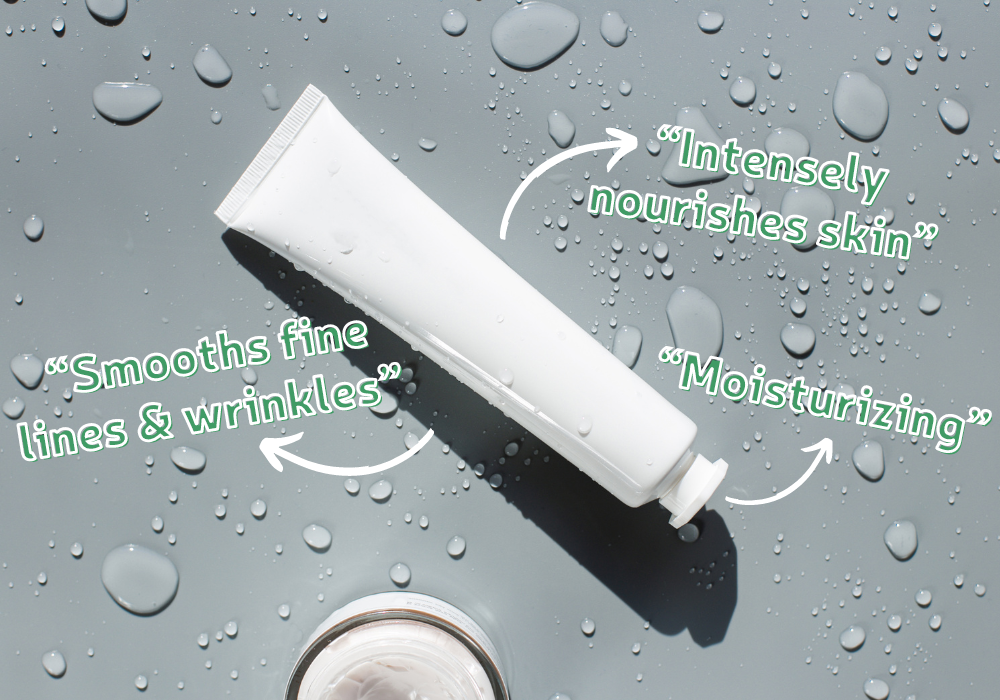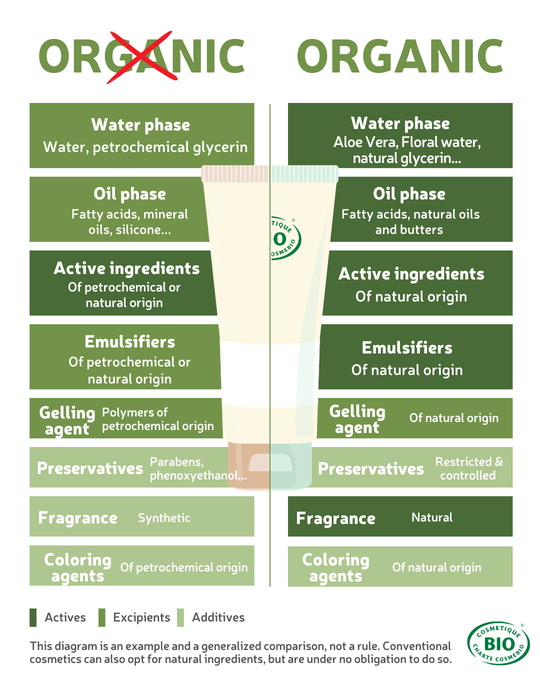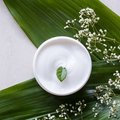"Moisturizing," "smooths wrinkles," "intensely nourishes skin"... These are just a few performance claims about the effectivness of a cosmetic product that you can find on organic cosmetic products.
But how credible are these claims? How are they obtained? Are organic cosmetics less effective than non-organic?
These answers to these questions are in this article!

Cosmetic Effectiveness Claims
We have already written a first article that is quite general about the cosmetic claims frequently found on the packaging of cosmetic products. In this article, we focus more specifically on "cosmetic effectiveness claims" or the "performance claims". This means claims that describe the effects of a cosmetic product after use, often related to its effectiveness.
There are different types of claims related to product performance:
- Measured Claims: +43% hydration
- Perceived Claims: hydrated skin for 90% of women
- Sensory Claims: skin softness
Brands use these claims to describe the effects of their products, to stand out from the competition, and to help consumers choose their cosmetic products.
However, whether they are organic or non-organic, brands are obligated to comply with European regulations and certain recommendations to protect consumers from any deception:
- European Cosmetics Regulation 1223/2009: a claim cannot be used to attribute to a product characteristics or functions that it does not possess!
- Regulation 655/2013of the European Commission and associated guidelines: defines common criteria to ensure that the information communicated to the final consumer through claims is useful, understandable, and reliable to enable them to make informed decisions and choose the most suitable product for their needs and expectations.
- Recommendations of the ARPP (Professional Advertising Regulation Authority in France) on advertising claims for cosmetic products (V8)
Thus, every claim must be proven, and the results of tests and scientific studies proving the claimed efficacy must be included in the Product Information File (PIF).
Moreover, compliance with these obligations is subject to regular checks by agents of the DGCCRF*.
* The DGCCRF (French General Directorate for Competition Policy, Consumer Affairs, and Fraud Control) is a control body that verifies that the claims have been proven and are compliant. By not complying with the law, brands face various sanctions (warnings, injunctions, fines, etc.).
How are effectiveness claims justified?
Effectiveness claims about the performance of cosmetic products can be justified by both objective methods (using measurement devices, evaluation of skin quality by an expert) and subjective methods (self-assessment by volunteers), depending on the brand's choice: the claim used on the product must strictly correspond to the effectiveness results obtained without possible extrapolation.
Data from scientific literature can be used as evidence... but often are not considered sufficient on their own. That's why other methods below will be used.
Let's take a closer look at the possible methods:
Consumer satisfaction tests
Consumer satisfaction tests involve asking questions to volunteers (selected to represent the target population) about their perception of the product through parameters they can observe themselves.
These types of tests allow brands to include, for example, the following statements on their products:
- "After 1 month of use, fine lines are visibly reduced (clinical evaluation, 33 women)"
- "83% of women say this cream smooths wrinkles (consumer test, 22 women, 28 days)"
- "After 2 months of use, the skin is visibly smoother (clinical evaluation, 33 women)"
Experimental studies
- In silico: tests using computer models and tools.
- Ex vivo: tests conducted using biological models obtained from humans (skin explants, hair strands, etc.).
- In vitro: tests conducted in a laboratory under artificial conditions.
- In vivo:
- instrumental tests using measurement devices on volunteers.
- clinical tests under the supervision of an expert (dermatologist, ophthalmologist, etc.) who measures the performance.
The methods and techniques used by cosmetic product brands (both organic and non-organic) are scientifically recognized to validate their claims. It is also worth noting that for any performance claim, brands must specify to the consumer:
- The type of test conducted (consumer test, instrumental test, etc.).
- The number of testers.
- The duration of the test (according to the test conducted).
Here's an example :
"Reduces wrinkle length (20%)*"
*Instrumental test, 12 women, 28 days
What ingredients make a cosmetic product effective?
The effectiveness of a cosmetic product is linked to the active ingredients in its composition. These ingredients have the particularity of acting on the surface and in the different layers of the skin.
If we compare the general composition of a non-organic cosmetic product to a organic one, we can see that the quantity of active ingredients is quite different.
Indeed, in organic cosmetics, the active ingredients are included in a multitude of ingredient "categories" in the formula:
- Water, which is generally sourced water or floral water rich in natural actives beneficial for the skin.
- Vegetable oils (avocado, almond, etc.) rich in fatty acids and vitamins.
- Added active ingredients providing targeted effectiveness for the product.
- Emulsifiers, for example, which can soften hair or skin.
- ...
Composition of a cosmetic : organic vs non-organic

This diagram is an example and not a generality. Non-organic cosmetics can also choose natural ingredients but are not obligated to do so, unlike organic cosmetics.
What we can take away about effectiveness claims in cosmetics:
Regardless of the type of cosmetic product, the requirements related to claims are the same: they must be true and proven! Thus, organic cosmetic products are not synonymous with inefficacy! We even conducted a study to demonstrate this unfair prejudice. 🧐 Discover the study here ➡


